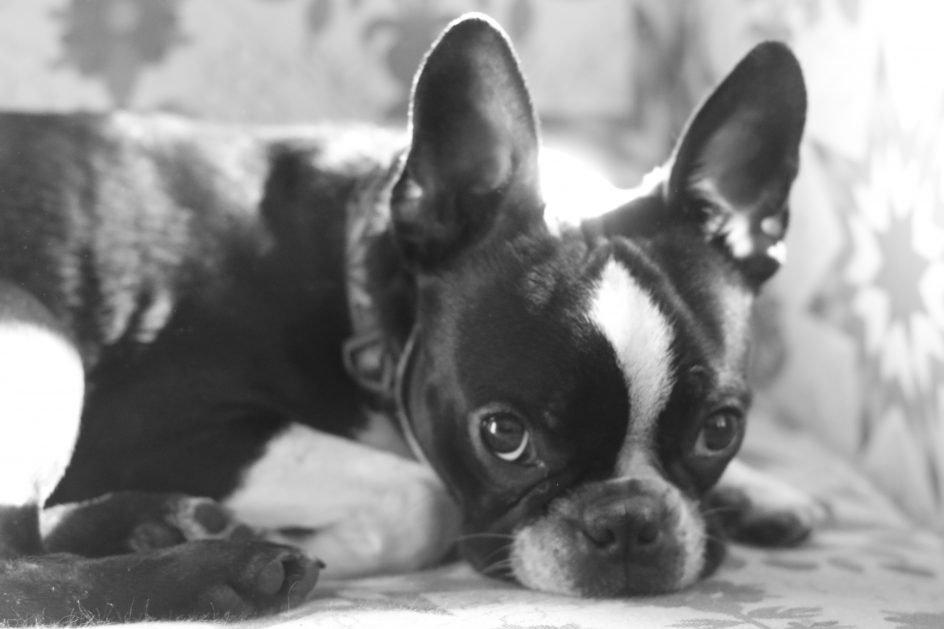
I’ve written many times about dogs and emotions, and it always generates a good deal of argument and emotion.
People really need to believe that dogs have our emotions, this has evolved from the increasingly intense and personal roles dogs are now playing in the emotional lives of people.
The projection of human emotions and values onto dogs has become an epidemic, it might be good for people, but it is no favor for dogs who have been emotionalized, medicated, rescued and increasingly confused with human children.
The new work of dogs is propping up their alienated and polarized and fragmented humans. Over time, we have come to worship dogs and dislike people. We have upended our emotional lives and theirs.
More and more, we are taking all of our human waste, grieving, loneliness, our neuroses and anxieties and dumping it on dogs in the name of love.
Hundreds of thousands of dogs are now on medications for anxiety or depression. Or for just being dogs and barking loudly.
I sometimes pity the happy and healthy dogs just looking for a home, they barely have a chance. One shelter worker told me she tells visitors that every dog in the shelter has been abused, those dogs get adopted. She says almost no one wants a happy dog.
I do not believe dogs grieve the way humans do, I don’t believe healthy and grounded dogs with healthy and grounded people experience separation anxiety, I don’t think they need to go on vacation with me, or to friends house for dinner, or to comfort me on airplanes. I don’t mourn their death for years.
I just love them, and one reason I love them is because they are not like us, they are quite different.
They have hope.
Recently, writing about Gus, I came across a piece by my favorite dog scholar, Stanley Coren. Writing about dogs, he sanely observed that dogs couldn’t possibly grieve like humans because they have no idea what death is, or the idea that humans or other dogs leave but will not ever return.
I wanted to cheer Dr. Coren on, a sane voice in the wilderness. You can read his very fine piece here.
Dr.Coren loves dogs as much as anyone, but he has perspective and I find his books invaluable and rational.
He agrees that dogs don’t grieve like we do, but he also observes that one emotion dogs might have is hope. Dogs, he writes are eternal hopefully and I love them for that. Hope is an emotion I see in dogs, every single day.
My dogs are ever hopeful they will get out to the sheep: every time I stand up, put a coat on, pick up car keys, or look outside, they are on their feet and at the door. They never get resentful or disappointed when their hopes don’t come true, they just wait until the next reason to be hopeful again.
They hope they will get a great, they hope they will go for a ride, they hope it is feeding time, or time to chase a ball. They hope to be scratched or petted, they hope to go for a walk. They hope to have something to bark at. They are always hoping for something, and are never disappointed or angry when they don’t get what they hoped for, which happens much of the time.
In fact, I believe, as Dr. Coren does, that when dogs look for lost humans or dogs, they are not mourning them, they are hopeful they will return, they hope to see them again. That works for me.
That is not the same thing as mourning death in the way that humans do, or feeling the same emotions that humans do.
The thing about dogs is that we get the dogs we need, and we project ourselves onto them, and we see the things we need to see.In our time, that is really the point of dogs. We don’t need them for farm work or protection any more.
I work hard to fight that impulse, which I also have, and to see the dogs for what they are, not for what we need them to be.
I love the hopefulness of dogs, and I have worked to incorporate this wonderful trait into my own world view. I am hopeful too, every day. When I look at the news, I do not lament our world, I hope for a better one. When I am sick, I hope to be well, when I hurt, I hope to be free of pain. When I see bad news, I hope for better news. I count on it.
When I was loveless, I hoped to be love. I believe this is one of the many powerful things my dogs taught me, and they can teach all of us a lot once we stop turning them into dependent replicas of our own sorry selves.
Dogs have hope, I see it every day.

Exactly what I’ve always said about my dogs…”they live in hope, and we can learn from that.”